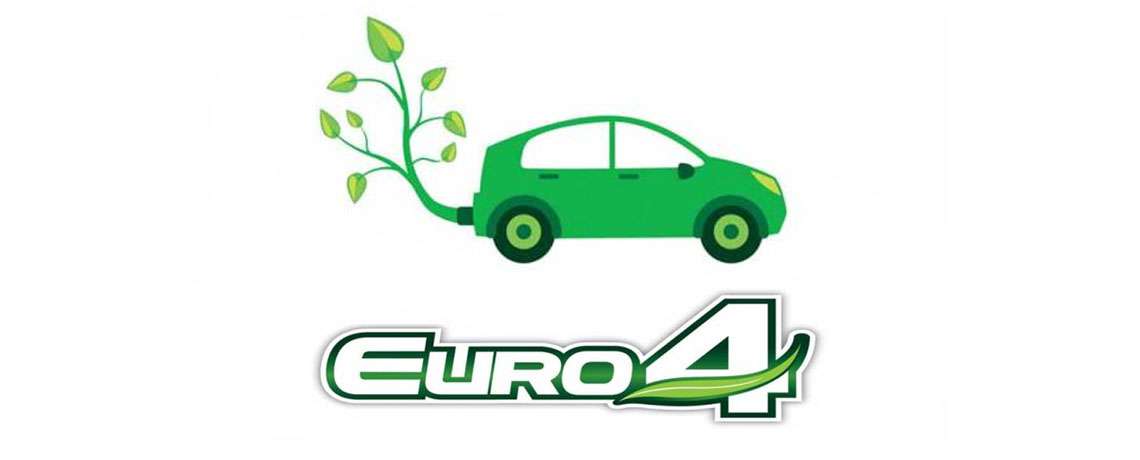28 Jun 2018 - {{hitsCtrl.values.hits}}

 The number of vehicles on the roads has increased drastically in recent times increasing the pollution level. Therefore, the Government in a bid to decrease the emission level has decided to import vehicles compatible with the Euro four standards, commencing July 1. Imported diesel and petrol vehicles meeting the Euro 4 emissions standard will replace the existing Super Diesel and Petrol vehicle stocks in the market.
The number of vehicles on the roads has increased drastically in recent times increasing the pollution level. Therefore, the Government in a bid to decrease the emission level has decided to import vehicles compatible with the Euro four standards, commencing July 1. Imported diesel and petrol vehicles meeting the Euro 4 emissions standard will replace the existing Super Diesel and Petrol vehicle stocks in the market.
“This is why we need to implement Euro 4,” automobile engineer Dr S.D.R Perera said.
He was a Senior Lecturer of the Department of Mechanical Engineering Automobile Lab at the Open University of Sri Lanka.
“People are polluting the environment and therefore we should take certain measures to control emissions,” he said.
“Concerns have been raised regarding heavy pollution. Scientists have also recommended that it is fitting to impose emission standards for vehicles,” he said.
The first Euro standard was introduced in 1994. In 1992 there was a restriction on carbon monoxide (CO), hydrocarbons (HC), nitrogen oxides (NOx), and particulate matter (PM). Euro 2 came in 1996 which was followed by Euro 3 in 2000 and Euro 4 in 2005.
The Govt. mentioned that importing vehicles should be compatible with the Euro 4 standards
“The main difference when it comes to Euro 4 is that it contains low levels of sulfur,” he said.
“Older vehicle manufactures, prior to the enforcement of vehicle standards, are not required to comply with these regulations at the moment. However, customers are in a dilemma as to if it would affect the operation of older vehicles.
“Vehicles which are not designed under Euro 4 standards should either retrofit with new engines or modify with arc treatment system. This decision should be taken by law makers,” he said.
“However, it is unfair to ask someone who has already bought a vehicle which does not comply with the Euro 4 standards to upgrade the vehicle and meet the Euro 4 emission standards.
“Still most of the vehicles brought to the country comply with the Euro 4 standards if they were bought from the domestic market. But the vehicles manufactured specifically for certain countries might not comply with this standard.
“During the Budget, the Government specifically mentioned that importing vehicles should be compatible with the Euro 4 standards with safety facilities such as airbags and three-point seat belts from July 1. The Government also informed vehicle importers not to open Letters of Credit (LCs) with effect from July 1, 2018.
“But this does not mean that vehicle owners who had imported their vehicles previously should fix new engines or other treatment systems to comply with Euro 4.
“Most of the new vehicles imported to the country from the domestic market from Japan or Europe comply with Euro 4 and those vehicles are in operation. Those vehicles have not experienced fuel related problems.
The Government also informed vehicle importers not to open Letters of Credit (LCs) with effect from July 1, 2018
One point which people seek clarification on is if they had imported Euro 4 complying vehicles, whether the fuel available in Sri Lankan refueling stations meets the requirement of Euro 4? That guarantee has to be given by the Ceylon Petroleum Corporation (CPC),” Dr Perera said.
“As far as the fuel is concerned, there is a requirement to reduce the sulfur content, which heavily contributes to acid rains. There are also carcinogenic compounds included in the fuel, such as benzene, which is known as a cancer-causing substance.
“Under Euro 4 standard regulations the content of benzene should be very low,” he said.
“If we talk about the technology that is being used in Euro 4, currently diesel vehicles are manufactured with Common Rail Direct Injection (CRDI) system. Most of the European luxury vehicles, which come with the CRDI technology, would help to reduce the exhaust and noise emissions with better fuel efficiency,” Dr Perera said.
“The local existing fuel does not have much impact on the lifetime of these engines. We have to improve the local refinery. The Government should be able to provide fuel at a reasonable price and there should be a continuous supply across the country.
“The move by the Government to impose the stringent requirement in terms of emission and safety features is coming together. As a scientist, an engineer and a citizen of this country, I say that this is the right time to switch to the new technology. The Government has also given ample time for the people to embrace this technology,” he said.
VIASL’s vision
Meanwhile, the Vehicle Importers Association of Sri Lanka (VIASL) said the Euro 4 quality certificate was a protection convention that was introduced in 2005.
What is this ABS?
It is a technology used to prevent the locking of one wheel or many wheels during the sudden application of brakes by observing the speed of the wheels. (Anti-lock Breaking System). It is liable to happen during accidents when the vehicle cannot be controlled due to locking of the wheel or many wheels during an application of brakes.
How does ABS work?
ABS is a vital part of any new car’s safety equipment, and effectively boosts braking. ABS uses electronics to detect and prevent wheel lock up. This helps a driver maintain the control of the vehicle because a steering of the car will still work when ABS is engaged. ABS gradually appeared as a safety feature in new cars from the 1970s on wards, while EU law has made it compulsory on all cars built since 2004.
A vehicle can be stopped within a short distance if the unnecessary wearing of tyres is minimised.
It is an effective technology that there are no failures found in it. ABS is a more suitable technology for an effective and efficient running for a driver who expects an activity without unnecessary wear and tear and wastage despite the fact that a vehicle can be stopped even without ABS technology, by using normal application of brakes.
The system of wearing belts only for the hip, introduced by FORD Company in 1955 and 1956, can be underscored as the origin of the seat belt protection technology. It was reintroduced in 1967 for VOLVO motor vehicles for front and rear seats as well and later in 1972, VOLVO Company introduced a more protective seat belt technology for three places connected to the vehicle. Since then, it has been introduced as a protective technology.
Three-point seat belts work
As a passenger in a vehicle moves his body according to the speed of the vehicle, the speed reduces due to abrupt application of brakes. Then, it is absorbed by the tyres which are connected to the earth and the friction and shock absorber by releasing the shocking power. When the passenger is liable to be thrown forward due to the speed of the vehicle (That is why the passengers goes forward during an abrupt application of brakes) , the seat belts help them to be tied to the vehicle on three spots. It goes to prove that Sri Lankans have not given the value of life to the passengers because the seat belts used in vehicles imported to Sri Lanka in 2018 lack safety.
Air bag
This is the technology used to minimize the accidents that are caused to drivers and passengers by friction with the other parts of the vehicles in case of an accident.
The importance of an air bag is stressed because it has been made compulsory in every developed country in the world.
Having taken into consideration the steps taken in 2018 or many years ago after giving priority to the protection of the people’s lives, it has to be assessed in terms of human protection for which co-operation has to be extended by all those concerned because the people feel strongly about protection in an undeveloped country like ours.
Most of the new vehicles imported to the country from the domestic market from Japan or Europe comply with Euro 4
As Sri Lanka march forward as a developed country; the protection of the passengers is her right. The development or progress of the developed countries in the world is measured not only in terms of economy or money in that particular country; there are many factors that have to be considered in this regard. In simple terms, development means a fact that a state has built a surrounding where people can live comfortably, with confidence and safely; it is a sign of development as well.
According to experts, it affects the vehicle market adversely. Their opinion is that the people should think in terms of their protection rather than travelling in a low cost vehicle. People did not discuss about a right of travelling with security. However, fortunately it can be treated that the people in our country have gained a victory in this regard.
Related article: Vehicles not up to Euro four standard, banned from July
23 Dec 2024 35 minute ago
23 Dec 2024 41 minute ago
23 Dec 2024 49 minute ago
23 Dec 2024 1 hours ago
23 Dec 2024 1 hours ago